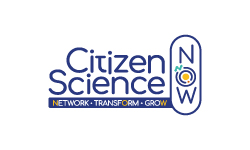

South African groundwater project shows the power of citizen science
September 2022
 A third of the planet’s water is underground, out of sight, and hard to access. Due to this, little information is available about the “invisible” groundwater. This problem is particularly acute in remote regions, such as the part of South Africa’s Limpopo province, where the Diamonds on the Soles of their Feet project is being implemented. The groundwater resources of two Limpopo villages, Ga-Komape and Ga-Manamela, are the subject of a collaboration between academics and residents. Nearly 74% of people depend on groundwater for their harvest and domestic water supply. Unfortunately, the amount of water available, how it recharges, and if it is clean are all unknowns to people who use this water.
A third of the planet’s water is underground, out of sight, and hard to access. Due to this, little information is available about the “invisible” groundwater. This problem is particularly acute in remote regions, such as the part of South Africa’s Limpopo province, where the Diamonds on the Soles of their Feet project is being implemented. The groundwater resources of two Limpopo villages, Ga-Komape and Ga-Manamela, are the subject of a collaboration between academics and residents. Nearly 74% of people depend on groundwater for their harvest and domestic water supply. Unfortunately, the amount of water available, how it recharges, and if it is clean are all unknowns to people who use this water.
Village residents have been trained to collect groundwater data for the past three years, where they use a dip meter and rain gauge to measure rainfall and flow in rivers. Then, using smartphones, data is collected and relayed to a website to help researchers and the government better understand what is happening under the ground. This action is referred to as citizen science. Through this project, volunteers in these remote rural areas are transformed from passive observers to scientists. Verification, validation, and visibility are provided for the data collected. It involves taking science out of the laboratory and into the field, bringing science to the people, so they can participate in solving problems, not contributing to them.
The focus of citizen science projects tends to be exclusively on complex data. However, the approach of the project is different. Its focus is not only on data but also on empowerment and transformation. The project aims to create a more equitable society by democratising knowledge and improving water literacy. The name of the project, “Diamonds on the soles of their feet”, emanates from farmers sharing a real treasure with researchers. Moreover, residents show a more prominent interest in water and a sense of belonging to a geographical area beyond their homes. As a result, their contribution has gathered significant recognition across the globe. At the Falling Walls Summit, part of Berlin Science Week 2021 in early November, the project was chosen as one of 20 winners from 189 projects in 80 countries worldwide.
Overall, the project has encouraged people to be more involved and has developed a community of practice where residents work together with scientists in the field.
Author: Jacqueline Goldin (Extraordinary Associate Professor of Anthropology and Water Sciences, University of the Western Cape)

This project has been funded with support from the European Commission. This publication [communication] reflects the views only of the author, and the Commission cannot be held responsible for any use which may be made of the information contained therein.

2021-1-DE02-KA220-ADU-000035352